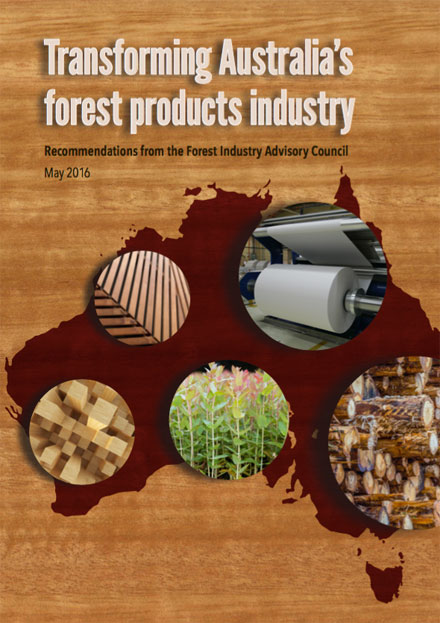
Co-Chair of the Forest Industry Advisory Council (FIAC), Mr Rob de Fégely presented recommendations that include a vision and three objectives for the forest industry and government to consider. Source: Timberbiz
Mr de Fégely said the goal of the plan was to triple the economic value of the forest industry by 2050 and he said this would be achieved by implementing three major objectives.
“Firstly we will have the right trees in the right place at the right scale. The forest industry has not always developed its forest resources as sympathetically as we should have, and we are keen to ensure that new development is wisely integrated with agriculture and rural communities,” he said.
“Secondly we will produce bio-products using all parts of the tree to a cellular level.
“It is critical that we maximise the use of all the wood that is harvested to not only optimise returns but limit waste.
“Almost any product that is made from fossil fuels can be made from wood and we see an exciting future for new bio based products such as fuels, solvents, plastics and pharmaceuticals as well as innovations in more traditional wood products such as engineered wood.
“Thirdly we will distinguish ourselves by being environmentally friendly, socially responsible and valued by the community.
“Our production forests are very public and we are keen to continue improving our environmental management and communication so that our rural neighbours and the Australian community at large understand and appreciate what we can do for our economy and the environment.
“FIAC has developed eight strategies and 19 targeted recommendations that will transform the industry, leading to a new bio-economy that will assist Australia’s current and future challenges to 2050.
“The Forest Industry Advisory Council was set up by former Parliamentary Secretary for Agriculture Sen the Hon Richard Colbeck and later capably taken on by Senator the Hon Anne Ruston.
“FIAC was designed to bring together a group of forest industry participants with a wide range of experience to provide a blend of thought and insight on where the industry can provide economic, environmental and social value to the community.
“We are deeply indebted to the time and effort that the Council Members have freely given to develop these recommendations which call on both industry and the government to act.
“FIAC has valued its role in advising the Australian Government and we look forward to both their response and the response from the forest industry at large.”
The full paper – Transforming Australia’s forest products industry can be downloaded at





